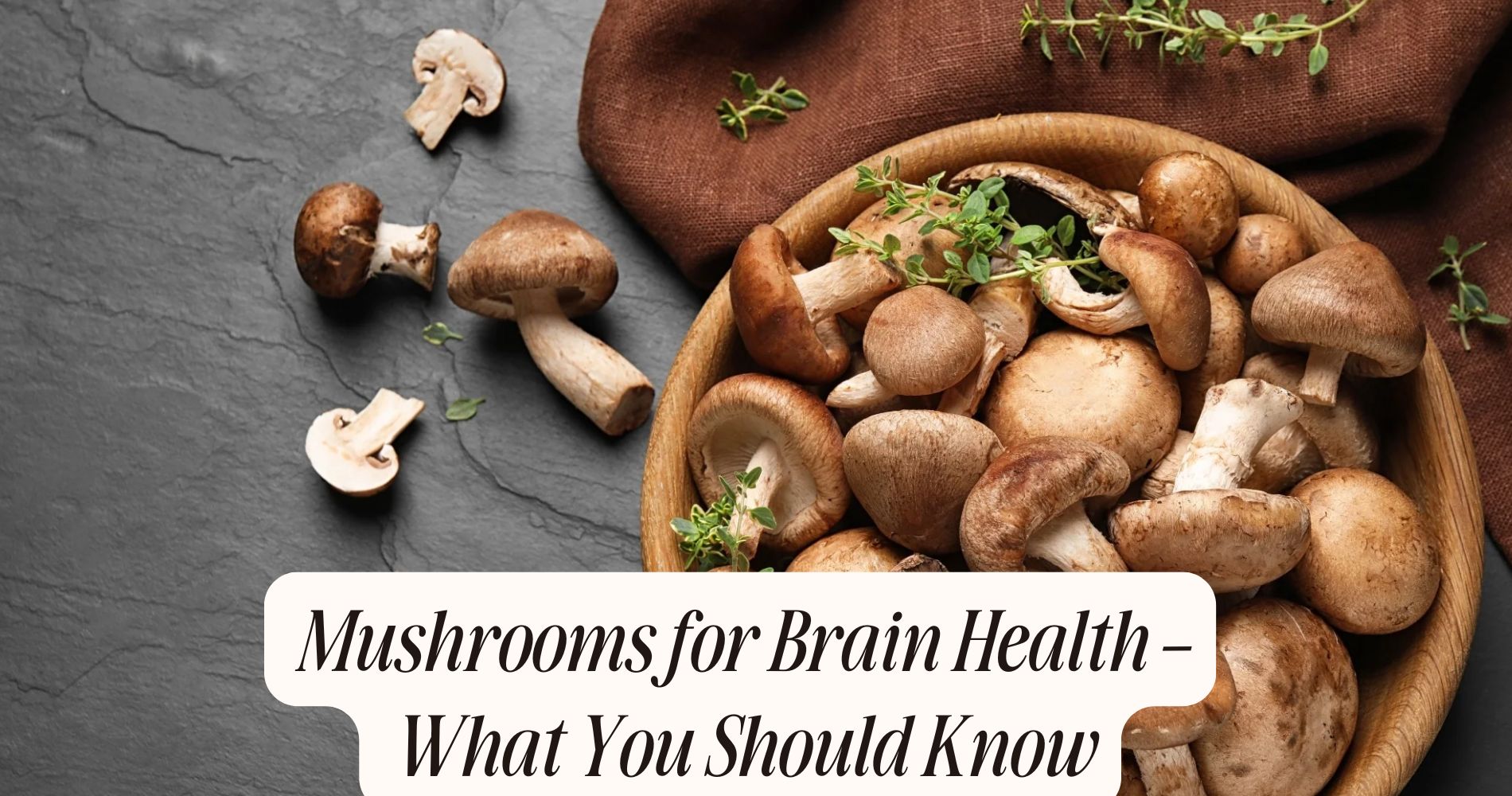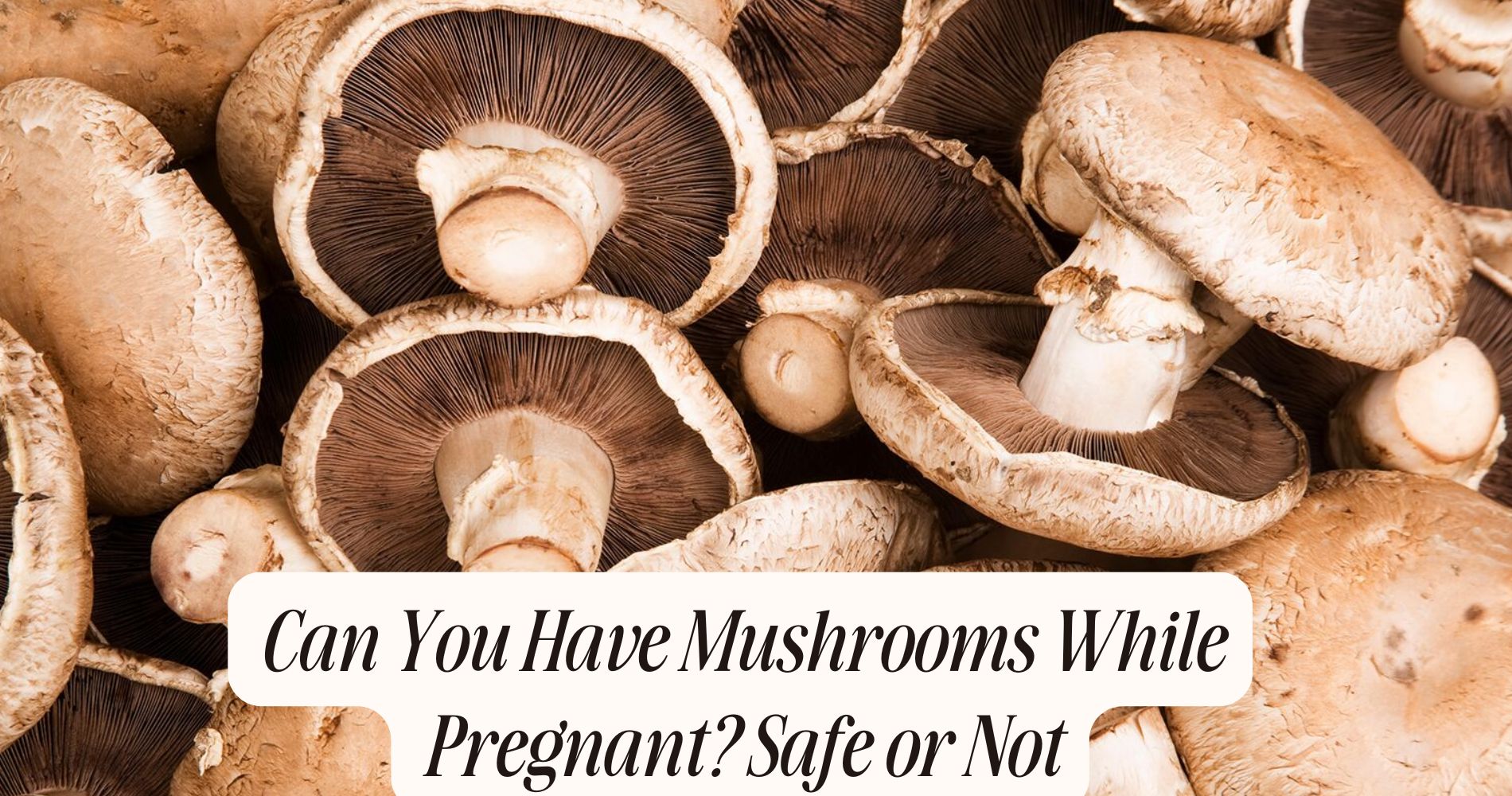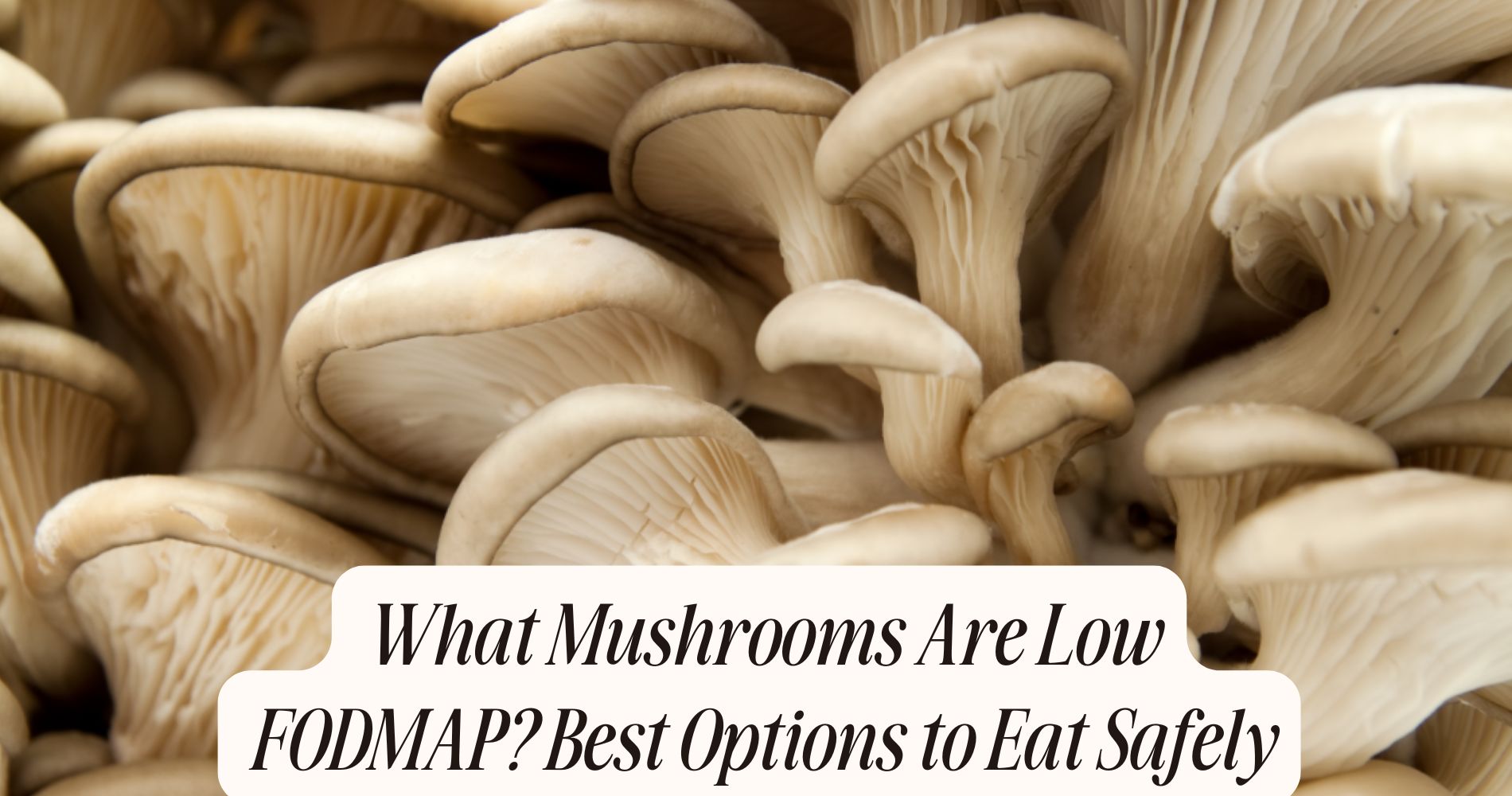
Mushrooms for Brain Health – What You Should Know
If you're looking to enhance cognitive function, mushrooms for brain health like lion’s mane, reishi, and cordyceps offer powerful bioactive compounds such as ergothioneine, hericenones, and beta-glucans. These nutrients support neuroprotection, improve memory and focus, and help build resilience to stress. Rich in antioxidants, vitamins, and immune modulators, they work to reduce inflammation and oxidative damage—key contributors to cognitive decline. To get the most benefit, choose high-quality supplements with standardized extracts and third-party testing. Read on to learn how to effectively incorporate these brain-boosting mushrooms into your routine.
The Science Behind Mushrooms and Cognitive Function
Although mushrooms have long been valued in culinary and traditional medicine, recent research highlights their bioactive compounds—such as ergothioneine, hericenones, and erinacines—for their neuroprotective and cognitive-enhancing properties.
You’ll find that controlled mushroom cultivation has enabled scientists to standardize these compounds for rigorous study, isolating their direct effects on neural health.
Analytical data shows that, beyond their traditional uses as tonics and adaptogens, specific mushrooms like Lion’s Mane (Hericium erinaceus) promote nerve growth factor synthesis, supporting synaptic plasticity and memory formation.

Research demonstrates that ergothioneine acts as a potent antioxidant, mitigating oxidative stress linked to cognitive decline.
Key Nutrients in Mushrooms That Support the Brain
When you examine the nutrient profile of edible and medicinal mushrooms, you'll find a unique convergence of compounds essential for ideal brain health. Mushrooms deliver B vitamins, especially riboflavin, niacin, and folate, which play critical roles in neurotransmitter synthesis and homocysteine regulation.
Ergothioneine and glutathione, potent antioxidants found in many cultivated species, actively mitigate oxidative stress implicated in cognitive decline. Additionally, mushrooms' selenium and copper content supports enzymatic processes crucial for neural function.
Mushroom cultivation practices can influence nutrient density, making source selection important for maximum benefit. In culinary uses, regularly incorporating varieties such as shiitake, maitake, or oyster mushrooms can enhance your intake of these neuroprotective nutrients.
Lion’s Mane: The Cognitive Booster
If you’re seeking a mushroom with well-documented neuroprotective properties, Lion’s Mane (Hericium erinaceus) stands out for its unique bioactive compounds. You’ll find that research highlights hericenones and erinacines, compounds in Lion’s Mane that stimulate nerve growth factor (NGF) synthesis.
NGF is essential for neuronal maintenance and cognitive performance. Analytical studies indicate that consistent dietary intake may enhance memory, focus, and even slow mild cognitive decline.
Mushroom farming techniques have evolved to optimize the yield and potency of these compounds, ensuring a reliable supply for both supplementation and culinary uses.
In the kitchen, you can incorporate Lion’s Mane’s seafood-like texture into various dishes, making cognitive support accessible through everyday meals.
Current evidence strongly suggests Lion’s Mane’s potential as a cognitive booster.
Reishi’s Role in Stress and Mental Clarity
While Lion’s Mane targets cognition directly, Reishi (Ganoderma lucidum) demonstrates its value through modulation of the body’s stress response and enhancement of mental clarity.
As you explore mushroom cultivation, you’ll notice that Reishi’s adaptogenic compounds, such as triterpenoids and polysaccharides, are well-documented in scientific literature for their impact on the hypothalamic-pituitary-adrenal (HPA) axis. This modulation can reduce cortisol levels, leading to a measured decrease in stress markers and subjective anxiety.

Traditional herbal remedies have utilized Reishi for centuries, supporting its role in promoting equilibrium within the nervous system.
Clinical studies further suggest that regular Reishi supplementation may improve sleep quality and cognitive flexibility, thereby indirectly supporting mental clarity.
Incorporating Reishi into your regimen offers a strategic, evidence-based approach to managing stress and enhancing mental resilience.
Cordyceps for Energy and Focus
Although Lion’s Mane and Reishi offer distinct neurological benefits, Cordyceps (Cordyceps militaris and C. sinensis) stands out for its capacity to enhance cellular energy production and sharpen mental focus.
When you consume Cordyceps, you support increased adenosine triphosphate (ATP) synthesis in mitochondria, directly influencing neuronal energy metabolism. Clinical studies link cordyceps stamina to improved oxygen utilization and resistance to mental fatigue, which can translate to better cognitive performance under stress.
How Chaga May Protect the Brain
Emerging research indicates that Chaga (Inonotus obliquus) exerts neuroprotective effects primarily through its potent antioxidant and anti-inflammatory properties. You’ll find that Chaga contains a high concentration of polyphenols and triterpenoids, which neutralize reactive oxygen species and reduce oxidative stress in neural tissue.
These compounds may mitigate neurodegeneration by modulating signaling pathways involved in inflammation. Traditional uses of Chaga in folk medicine highlight its role in promoting vitality and cognitive function, which modern studies now begin to validate.

Advances in mushroom cultivation have enabled controlled production of Chaga, ensuring consistent bioactive compound profiles and purity for research and supplementation. By incorporating Chaga into your regimen, you may leverage its evidence-based neuroprotective mechanisms to support long-term brain health and resilience against age-related cognitive decline.
The Impact of Shiitake and Maitake on Mental Wellness
Beyond Chaga’s neuroprotective profile, Shiitake (Lentinula edodes) and Maitake (Grifola frondosa) offer distinct contributions to mental wellness through their unique bioactive compounds. You’ll find that beta-glucans, eritadenine, and polysaccharides in these mushrooms modulate immune response and reduce neuroinflammation, both linked to cognitive resilience and mood regulation.

Studies indicate regular consumption may support synaptic plasticity and mitigate oxidative stress, key factors in maintaining mental acuity. Mushroom cultivation methods influence the concentration of these compounds, so sourcing quality specimens is vital.
Due to their adaptability, Shiitake and Maitake are widely available and valued for both nutritional and culinary uses. Their integration into your routine allows you to leverage these neuroactive benefits without pharmacological intervention, supporting holistic approaches to mental wellness.
Ways to Incorporate Medicinal Mushrooms Into Your Diet
When integrating medicinal mushrooms into your diet, consider both bioavailability and preparation methods to maximize their neuroactive benefits. To optimize absorption, use extraction techniques such as hot water or alcohol tinctures, which release polysaccharides and triterpenes.
You can source mushrooms through local mushroom cultivation, ensuring minimal degradation and contamination. Culinary uses include adding dried or powdered forms to soups, teas, and smoothies; this not only preserves heat-sensitive compounds but also enhances flavor integration.

Incorporate varieties like lion’s mane, reishi, and cordyceps into daily meals for a consistent intake of neuroprotective compounds. Avoid consuming raw mushrooms, as chitinous cell walls inhibit nutrient release.
What Research Says About Safety and Side Effects
While medicinal mushrooms like lion’s mane, reishi, and cordyceps exhibit neuroprotective effects, current research emphasizes the importance of evaluating their safety profiles and potential side effects.
Studies indicate that these mushrooms are generally well-tolerated when consumed in moderate amounts. However, you should be aware that adverse reactions can occur, particularly in individuals with pre-existing health conditions or sensitivities.
Documented adverse reactions include gastrointestinal upset, skin rashes, and, in rare cases, liver toxicity. Additionally, allergic responses have been reported, especially in those prone to allergies, manifesting as respiratory symptoms or dermatologic reactions.
Clinical trials remain limited, and long-term safety data are still lacking. If you’re considering adding medicinal mushrooms to your routine, it’s essential to monitor for any negative responses and consult healthcare professionals.
Tips for Choosing High-Quality Mushroom Supplements
Although the supplement market offers a wide range of mushroom products, discerning high-quality options requires critical evaluation of several factors. You should scrutinize the source of mushroom cultivation; reputable suppliers utilize controlled, contaminant-free environments and often disclose whether they use fruiting bodies or mycelium.
Analytical reasoning suggests you prefer products that provide transparent testing for heavy metals, pesticides, and microbial contamination. Check labels for standardized extract ratios and clear information about active compounds such as beta-glucans.
Evidence-based guidelines recommend verifying that supplement dosages align with those used in clinical research, as potency can vary widely between brands. Finally, ensure products are third-party tested for quality assurance.
Brain-Boosting Benefits Made Simple: SUPER MUSHROOM GUMMIES
Exploring the power of mushrooms for brain health? Make it easy and delicious with Well Gummies' SUPER MUSHROOM GUMMIES. Formulated with 10 functional mushrooms—including brain-supporting varieties like Lion’s Mane and Reishi—these vegan gummies are designed to enhance focus, memory, and mental clarity. With a wild berry flavor that tastes like your favorite candy, they’re a convenient way to fuel your brain daily—without jitters, crashes, or complicated prep. Support a sharper, more balanced mind the smart way with Well Gummies!
Frequently Asked Questions
Can Mushrooms Interact With Common Prescription Medications?
You should recognize that mushrooms can cause medication interactions, particularly with anticoagulants or immunosuppressants. Carefully assess dosage considerations, as bioactive compounds may alter drug metabolism. Consult clinical evidence and your healthcare provider before combining mushrooms with prescription medications.
Are Mushrooms Safe for Children or Pregnant Women?
You should carefully evaluate child safety and pregnancy considerations before introducing mushrooms. Scientific evidence on long-term effects in these groups remains limited. Consult your healthcare provider to assess potential risks, as some mushrooms may interact with developing systems.
Do Mushrooms Help With Age-Related Memory Loss?
You’ll find some mushroom varieties, like lion’s mane, show promise for cognitive enhancement. Studies suggest they may support memory and neural health, but current evidence isn’t conclusive. You shouldn’t rely solely on mushrooms for age-related memory loss prevention.
Are There Any Mushrooms to Avoid for Brain Health?
You should avoid poisonous varieties, as mushroom toxicity can cause neurotoxic effects and irreversible brain damage. Evidence shows consuming wild or unidentified mushrooms increases risk. Always choose scientifically validated, edible species to support brain health and minimize toxicity concerns.
How Long Does It Take to Notice Cognitive Benefits From Mushrooms?
When evaluating the timing of benefits, you’ll typically notice cognitive effects from mushrooms within 2 to 12 weeks, depending on dosage considerations, individual metabolism, and adherence to evidence-based protocols supported by clinical trials and analytical reasoning.
Conclusion
You’ve seen that scientific evidence increasingly supports mushrooms’ potential for brain health, thanks to their bioactive compounds like hericenones, erinacines, and beta-glucans. By incorporating mushrooms such as Lion’s Mane, Reishi, Cordyceps, Shiitake, and Maitake into your diet or supplement regimen, you’re leveraging their cognitive, adaptogenic, and neuroprotective properties. Remember, though, research is ongoing—so always evaluate supplement quality and discuss with your healthcare provider to guarantee safe, evidence-based integration into your wellness routine.




